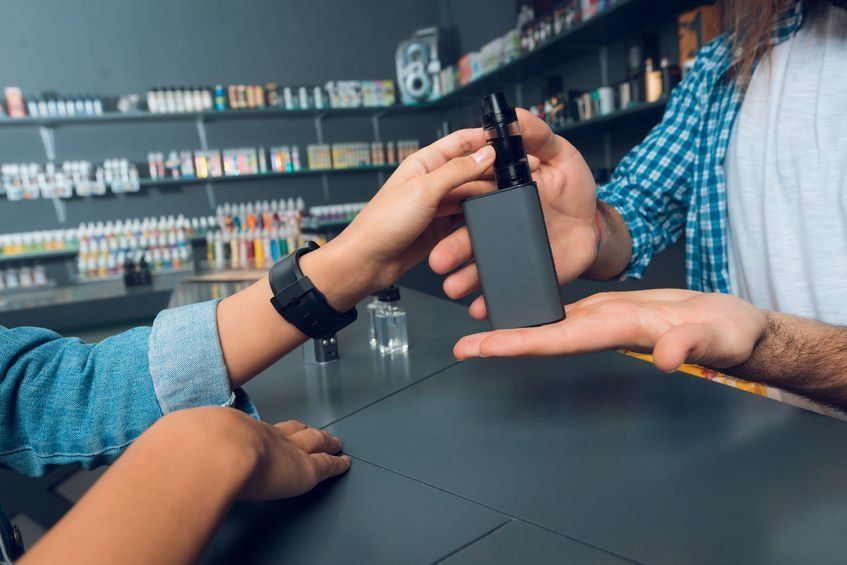Smoking and Vaping Laws in North Carolina
tIt’s no secret that consuming tobacco isn’t good for you. It’s bad for your heart and lungs, affects the health of your teeth and gums, and can result in a variety of painful, and sometimes deadly, diseases. Regardless, many Americans still choose to use it, whether by using traditional cigarettes or by using vapor products.
The health downsides are just one of the reasons many states have placed restrictions on nicotine/tobacco use, and our state is no different. In this article, we’ll discuss North Carolina’s tobacco products law, as well as the new changes to federal laws pertaining to tobacco use.
North Carolina Tobacco Use Laws
Compared to some states, North Carolina’s laws regarding where and when an individual can smoke tobacco are pretty relaxed.
The first part of the law prohibits people from smoking inside state buildings and in state-owned vehicles, and “no smoking signs” must also be placed in these places. Smoking may also be prohibited or restricted state-owned grounds as long as it’s approved by the Board of County Commissioners.
Smoking is also prohibited in restaurants and bars in North Carolina. Owners of these establishments are required to post no-smoking signs and remove ashtrays from all indoor areas (if present). Restaurants and bars that don’t adhere to this law can be penalized by the health department, and patrons who smoke inside these establishments can be fined up to $50 for each infraction.
Additionally, smoking is also prohibited in child care centers, home child care facilities, state correctional facilities, and in school buildings, on school grounds, or at school-sponsored events.
There are a few exceptions to these tobacco use laws. The first is that smoking is permitted inside state buildings where medical or scientific research that pertains to smoking is being conducted. For example, if the North Carolina Division of Public Health was conducting research where they needed to observe participants actively smoking, they would be allowed to do so inside one of their state-owned laboratories.
Smoking is also allowed in private residences and vehicles, designated smoking rooms in hotels, private clubs, and cigar bars or tobacco shops where the smoke cannot migrate into an enclosed area.
North Carolina Vaping Laws
Unfortunately, while vapor products may be more discrete and less smelly than traditional cigarettes, that doesn’t make them any better for you, which is why they are included in state tobacco products laws.
Under North Carolina law, the term “vapor products” can refer to any kind of electronic cigar, pipe, or cigarette that takes an e-liquid cartridge and uses a mechanical heating element, battery, or electronic circuit to turn the liquid into vapor. It is worth noting that “e-liquid”, as defined by state law, doesn’t have to contain nicotine, but instead refers to any sealed, pre-filled cartridge designed for use with a vapor product.
The use of vapor products is prohibited in all the same places as other tobacco products are, including state buildings, schools, etc. Finally, e-liquid packaging must state if it contains nicotine and has to be sold in child-resistant containers.
New Federal Tobacco Use Laws
On December 20th, 2019, the President signed an amendment to the Federal Food, Drug, and Cosmetic Act. This amendment raised the minimum age that retailers can sell individuals tobacco products from 18 to 21. This applies to all tobacco products, including cigarettes, cigars, vapor products, etc.
The law took effect immediately upon being signed and does not include any kind of phase-in period for individuals who have already turned 18 but are not yet 21. The law also does not include an exemption for military members under 21. Retailers who do not comply with federal laws risk fines and other penalties.
It’s too early to tell what kind of impact this will have on North Carolina-based businesses, but it is sure to affect the economy in some fashion. This is especially true for establishments that sell vapor products, considering that these are the products of choice for most younger consumers.
Regardless of whether you agree with them or not, these laws exist to hopefully protect future generations from the harmful effects of long-term tobacco and nicotine use. If you are found in violation of state tobacco-use laws and need the help of a lawyer, get in touch with Mulligan Attorneys today at 910-763-1100.
*Our clients should message us through their secure client portal for faster communication. Access your client portal using the Client Portal Login button above. You must set up your access using the invitation email you received from our office. If you need another copy of the client portal setup email, please send the request to info@mulliganattorneys.com.
Mulligan Attorneys, PLLC




